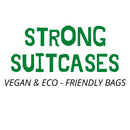While shopping in a grocery store or browsing the web, chances are you’ve run into terms such as vegan, eco-friendly, green, sustainable, and ethically made. But what do they even mean?
The good news is the increased use of such terms means that we are headed in the right direction where society cares more about the environment and the animals. The not-so-good news is, all of these terms are now what is called “buzzwords”, which means that companies and people are using them loosely and interchangeably with hopes of gaining more attention. This, of course, means many products are inaccurately described as one thing or another.
To help you choose wisely as you shop through the grocery store or online, we’re here to help. Let’s take a look at some of the most common terms or labels you might see and what they really mean.
Vegan
Although all of the terms are technically related, ‘vegan’ is a philosophy and way of life in itself. Coined by Donald Watson in 1944, veganism is defined as “the practice of abstaining from the use of animal products, particularly in diet, and an associated philosophy that rejects the commodity status of animals. A follower of the diet or philosophy is known as a vegan..."
Basically, vegan is a term used to describe either a diet/lifestyle that refrains from the use of all animal products or a person who follows this philosophy of living. Veganism, as you may already know, benefits our health, the environment, the animals, and much more.
Green
Green is a rather loosely defined term that serves as an umbrella term. It’s commonly used to describe anything and everything that is related to having a benefit for the environment. Because of this, the term “green” is used to describe fashion movements, government initiatives, and the environmental movement itself. Eco-friendly, sustainable, vegan, and ethical movements can all be considered green initiatives by nature.
Eco-Friendly
Unlike the term “green”, eco-friendly has a very specific definition. According to the Merriam-Webster dictionary, eco-friendly means “not environmentally harmful”. This basically means that if something is eco-friendly, it does not cause any harm to the environment. Eco-friendly products are commonly made using recycled, biodegradable, or reusable materials.
Sustainable
While eco-friendly and the rest of these terms focus on the now, sustainability is specifically focused on the future. If a product is sustainable, this means that it does not compromise the ability of our future generations to live and meet their human needs. A sustainable product or service typically provides its intended benefit without causing pollution or using up a large number of resources.
While many products claim to be sustainable, the truth is that there are very few truly sustainable products on the market. Rather, some are simply closer to being sustainable than others. As a general rule, sustainable products are usually reusable for a rather long time.
Ethically-Made
A product being ethically-made means that it was made with a (hopefully) high focus on protecting the wellbeing of the company’s workers, including their health, pay, and working conditions. Unfortunately, there are many “sweatshops” in third world countries that demand harsh working conditions while offering little pay. As the ethical trade movement continues to develop, ethically-made products are becoming more in demand versus products that are made under harsh conditions.

